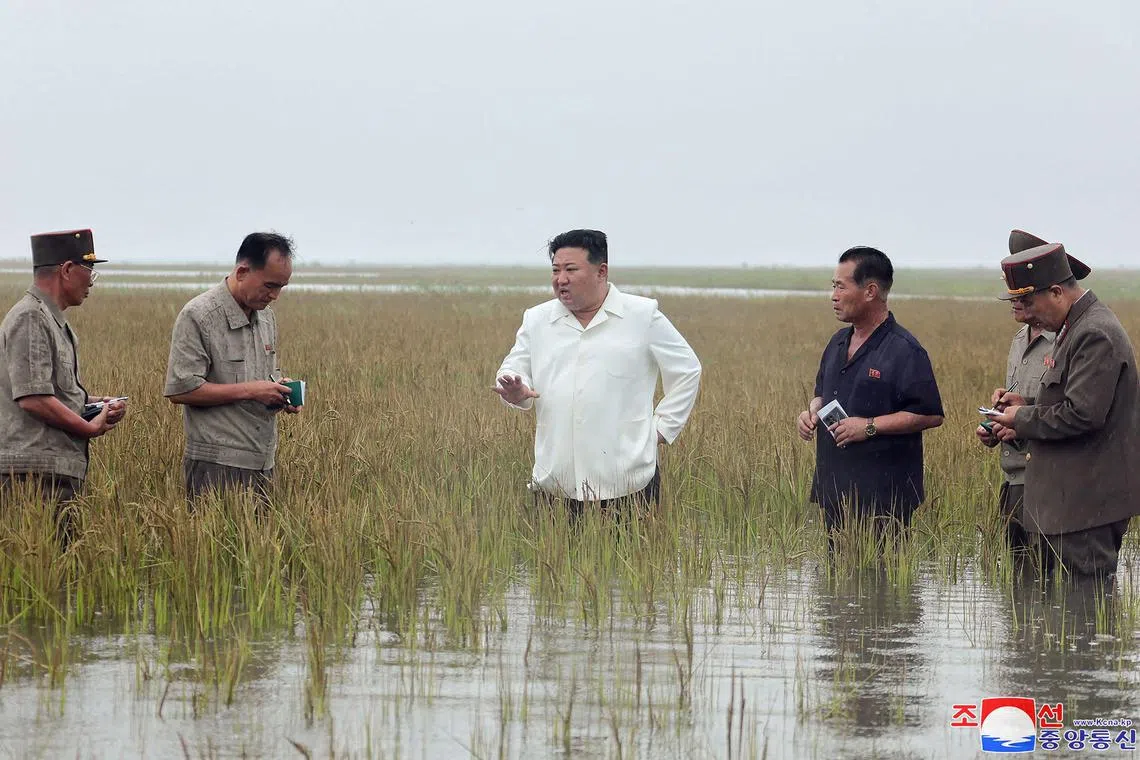North Korean leader Kim Jong Un blasts ‘irresponsible’ top officials for flood damage
Sign up now: Get ST's newsletters delivered to your inbox

Mr Kim Jong Un inspected a tideland after seawater recently destroyed an embankment with inadequate drainage system.
PHOTO: AFP
Follow topic:
SEOUL - North Korean leader Kim Jong Un has lashed out at top officials for their “irresponsible” response to flood damage, saying they had “spoiled” the national economy, state media reported on Tuesday.
Mr Kim inspected a tideland on the west coast on Monday after seawater recently destroyed an embankment with inadequate drainage system, flooding more than 560ha of land, including over 270ha of rice paddies, news agency KCNA said.
Chastising officials for their “very irresponsible” neglect of duties, Mr Kim singled out Mr Kim Tok Hun, premier of the Cabinet, for inspecting the destroyed site once or twice “with the attitude of an onlooker”.
“He said... in recent years the administrative and economic discipline of the Kim Tok Hun Cabinet has got out of order more seriously and, consequently, the idlers are spoiling all the state economic work with the irresponsible work manner,” the KCNA said in an English-language dispatch.
Such irresponsibility and lack of discipline from officials is “mainly attributable to the feeble work attitude and wrong viewpoint of the premier of the Cabinet,” Mr Kim said.
This week’s visit is the latest in a series of inspections the North Korean leader has made of flood-hit farmlands
Professor of North Korean studies Lim Eul-chul from South Korea’s Kyungnam University said Mr Kim’s harsh criticism could herald a Cabinet reshuffle.
It also demonstrates that the economy is not developing as planned, Prof Lim added.
“After all, Kim appears to be furious over the national economy not improving as much as he wants,” Prof Lim said.
The North has suffered serious food shortages in recent decades, including famine in the 1990s, often as a result of natural disasters. International experts have warned that border closures during the Covid-19 pandemic worsened matters. REUTERS

